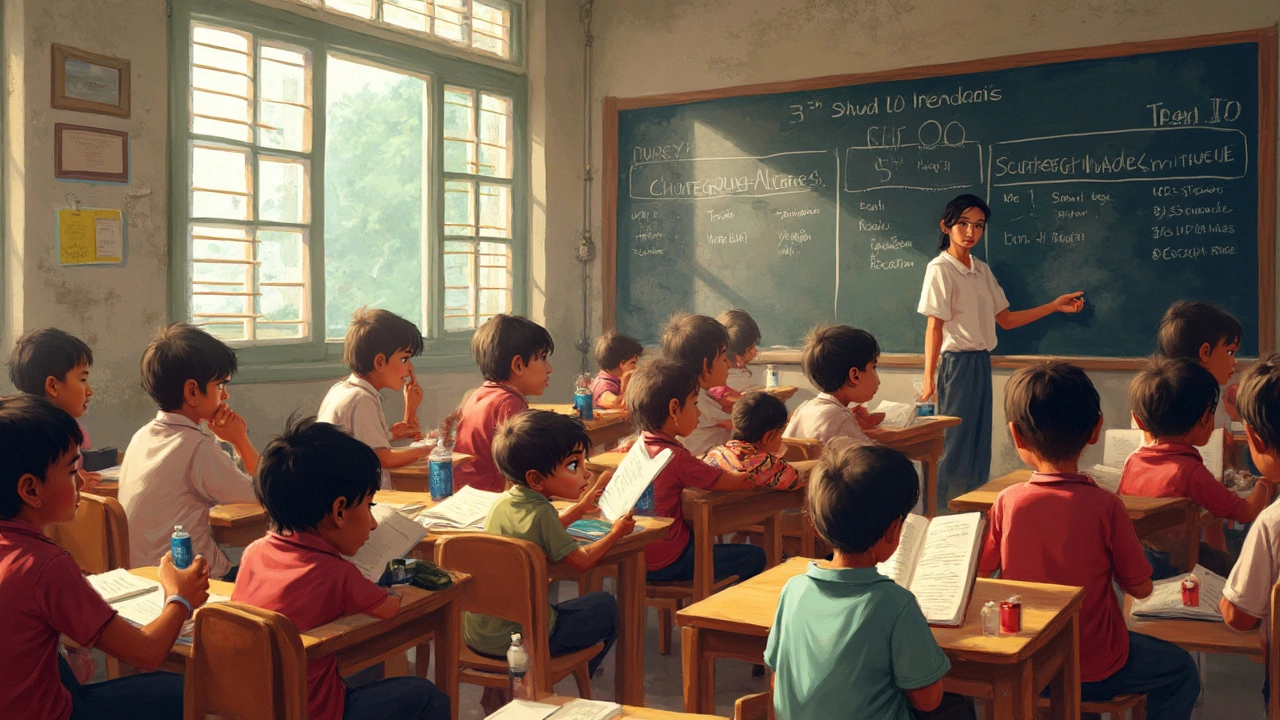Indian school boards: CBSE, ICSE, State Boards and what they mean for your future
When you talk about Indian school boards, the official systems that govern school curricula, exams, and certification across India. Also known as education boards, they don’t just decide what kids learn—they shape how they think, how they handle pressure, and even what careers they can realistically aim for. The three big ones—CBSE, the Central Board of Secondary Education, used by over 20,000 schools nationwide and the most common path for students targeting engineering or medical fields, ICSE, the Indian Certificate of Secondary Education, known for its deeper focus on English, projects, and critical thinking, and state boards, regional systems that vary widely in structure, language, and rigor, often aligned with local college admissions—each send students down different roads.
CBSE is the default choice for families chasing IITs, NITs, or NEET. Its syllabus is streamlined, predictable, and closely tied to competitive exams. But it’s not the only path. ICSE students often end up better prepared for writing, research, and overseas universities because their curriculum demands essays, presentations, and consistent assessment—not just one final exam. Meanwhile, state boards like Maharashtra’s MSBSHSE or Tamil Nadu’s TN Board can be easier to pass, but they sometimes lack the national recognition that makes college applications smoother. The truth? No board is "better." But some fit better with your goals. If you’re aiming for web development or tech careers, CBSE’s math and science focus gives you a head start. But if you want to build strong communication skills for freelancing or global teams, ICSE’s language-heavy approach might serve you longer.
And here’s what most parents don’t realize: your child’s board doesn’t lock them into a career. A CBSE student can become a UX designer. An ICSE student can ace JEE. But the board shapes their starting point. The posts below break down how these boards affect real outcomes—like how CBSE students compare to those studying abroad, why some boards make learning web development easier, and how the pressure from board exams impacts sleep, focus, and mental health. You’ll find real stories from students who switched boards, parents who regretted their choices, and teachers who’ve seen the system from the inside. This isn’t about which board is perfect. It’s about which one helps your child thrive.
Which Board Is the Toughest in India? A Practical Look at CBSE and Beyond
Curious about which school board is considered the toughest in India? This article compares CBSE with other major boards, highlighting their unique challenges and what it actually means for students. You'll find real-life examples, direct tips for tackling tough syllabuses, and facts that students and parents should know before choosing a board. Get straight answers on what really sets each board apart. The goal—help you decide what's best, not what sounds hardest.
